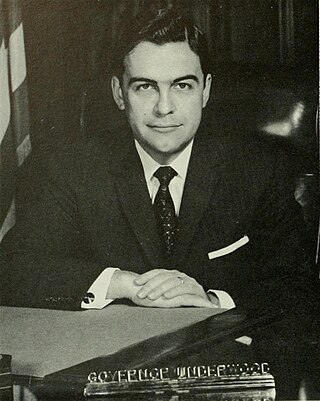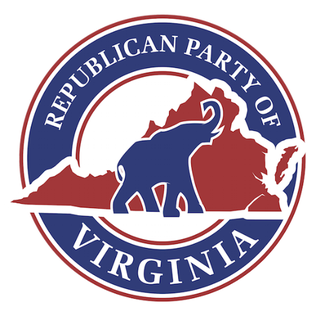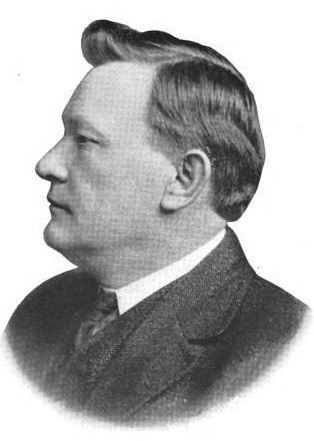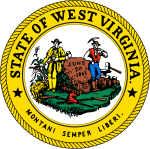
Presidential elections were held in the United States on November 6, 1928. Republican former Secretary of Commerce Herbert Hoover defeated the Democratic nominee, Governor Al Smith of New York. After President Calvin Coolidge declined to seek reelection, Hoover emerged as the Republican party's frontrunner. As Hoover's party opponents failed to unite around a candidate, Hoover received a large majority of the vote at the 1928 Republican National Convention. The strong state of the economy discouraged some Democrats from running, and Smith was nominated on the first ballot of the 1928 Democratic National Convention. Hoover and Smith had been widely known as potential presidential candidates long before the 1928 campaign, and both were generally regarded as outstanding leaders. Both were newcomers to the presidential race and presented in their person and record an appeal of unknown potency to the electorate. Both faced serious discontent within their respective parties' membership, and both lacked the wholehearted support of their parties' organization.

Cecil Harland Underwood was an American Republican Party politician from West Virginia, known for the length of his career.

The Solid South was the electoral voting bloc for the Democratic Party in the Southern United States between the end of the Reconstruction era in 1877 and the Civil Rights Act of 1964. During this period, the Democratic Party controlled southern state legislatures and most local, state and federal officeholders in the South were Democrats. During the late 19th century and the early 20th century, Southern Democrats disenfranchised nearly all blacks in all the former states of the Confederate States of America. This resulted in a one-party system, in which a candidate's victory in Democratic primary elections was tantamount to election to the office itself. White primaries were another means that the Democrats used to consolidate their political power, excluding blacks from voting.

Henry Drury Hatfield was an American Republican politician from Logan County, West Virginia. He served a term as the 14th governor of West Virginia, in addition to one term in the United States Senate. Hatfield was nephew to Devil Anse Hatfield, leader of the Hatfield clan.

The 1928 Republican National Convention was held at Convention Hall in Kansas City, Missouri, from June 12 to June 15, 1928.

The Republican Party of Virginia (RPV) is the Virginia chapter of the Republican Party. It is based at the Richard D. Obenshain Center in Richmond. As of May 2024, it controls all three statewide elected offices, 5 out of 11 U.S. House seats, and the governor's seat within the state.

William Gustavus Conley was an American lawyer and politician who served as the Attorney General of West Virginia (1908–1913) and 18th governor of West Virginia as a Republican.

Edward Theodore England was a lawyer and politician from West Virginia. He served in the West Virginia Senate, as Attorney General of West Virginia, and as a member of the United States House of Representatives.

The West Virginia Republican Party is the affiliate of the United States Republican Party in West Virginia. Matthew Herridge is the party chair. It is currently the dominant party in the state, and is one of the strongest affiliates of the national Republican Party. It controls both of West Virginia's U.S. House seats, both of the U.S. Senate seats, the governorship, and has supermajorities in both houses of the state legislature.

The 2008 United States Senate election in West Virginia was held on November 4. Incumbent senator Jay Rockefeller won re-election to a fifth term in a landslide, defeating Republican Jay Wolfe who had returned from the 2002 Senate election by a 27-point margin. Despite this overwhelming win, this remains the last time that a Democrat has won West Virginia's Class 2 U.S. Senate seat. In both of the two subsequent elections for the seat, Republicans have swept every single county.

James Alfred Taylor was an American politician, a member of the Democratic Party from West Virginia.

The 2000 United States presidential election in West Virginia took place on November 7, 2000, as part of the 2000 United States presidential election. Voters chose 5 representatives, or electors to the Electoral College, who voted for president and vice president.

The 2014 United States elections were held on Tuesday, November 4, 2014, in the middle of Democratic President Barack Obama's second term. A typical six-year itch midterm election suffered by most second-term presidents, this election saw the Republican Party retaining control of the House of Representatives and winning control of the Senate, while furthering their gains in the governorships and state legislatures. Because of these Republican gains, the election was commonly cited as a "red wave" election.

The 1928 United States presidential election in Virginia took place on November 6, 1928. Voters chose 12 representatives, or electors to the Electoral College, who voted for president and vice president.

James Conley Justice II is an American businessman and politician who is serving as the junior United States senator from West Virginia since 2025. A member of the Republican Party, he served as the 36th governor of West Virginia from 2017 to 2025. Justice was once a billionaire, but his net worth had declined to $513.3 million as of 2021. He inherited a coal mining business from his father that included 94 companies, including the Greenbrier, a luxury resort and National Historic Landmark in White Sulphur Springs.

The 1956 West Virginia gubernatorial election took place on November 6, 1956, to elect the governor of West Virginia.

The 1928 United States presidential election in West Virginia took place on November 6, 1928, as part of the 1928 United States presidential election which was held throughout all contemporary 48 states. Voters chose eight representatives, or electors to the Electoral College, who voted for president and vice president.

West Virginia held elections on November 8, 2016. Elections for the United States House, as well as for several statewide offices including the governorship were held. These elections were held concurrently with the 2016 U.S. presidential election and other elections nationwide. Primary elections were held on May 10, 2016.

The 2024 West Virginia gubernatorial election was held on November 5, 2024, to elect the governor of West Virginia, concurrently with the 2024 U.S. presidential election, as well as elections to the United States Senate and elections to the United States House of Representatives and various state and local elections. Republican state Attorney General Patrick Morrisey was elected to his first term in office after defeating Democratic Huntington mayor Steve Williams in the general election. Incumbent Republican Jim Justice was term-limited and was unable to seek re-election to a third consecutive term in office; he instead ran for the U.S. Senate.

Armistead Abraham "Cousin Abe" Lilly was an American lawyer, politician, and businessperson in the U.S. state of West Virginia. A Republican, Lilly served as the 16th Attorney General of West Virginia from March 4, 1913, until March 3, 1917.























